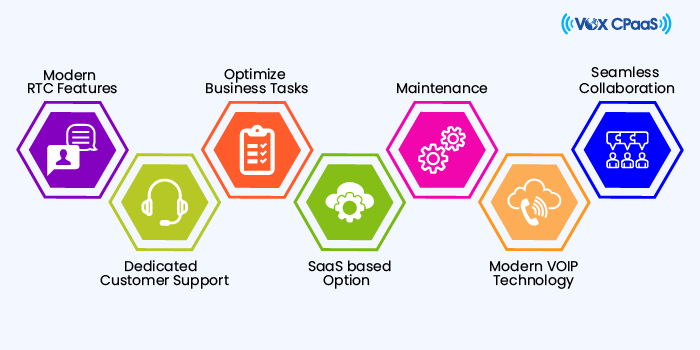How Real-time Communication Can Help?

When comparing firms across regions and sectors, real-time communication stands out as a universal trait. Today’s businesses rely heavily on real-time communication for a variety of reasons, including the facilitation of idea sharing and collaboration, the provision of instantaneous assistance to remote workers by experts, the speedy resolution of customer service inquiries, and the resolution of equipment problems.
Businesses of all kinds are relying more and more on real-time communication tools hosted in the cloud as a means to improve operational efficiency, increase employee engagement, and better serve consumers.
Just what exactly is “real-time” communication?
Real-time communication provides the immediate pleasure that consumers have grown to anticipate from the companies they buy goods and services from. When two or more people are able to exchange information in near-real time, with few interruptions and no transmission delays, they are said to be engaging in real-time communication (RTC). Landlines, cell phones, IM, VoIP, and video conferencing are all forms of real-time communication.
Peer-to-peer in nature, real-time communication solutions facilitate interaction between workers despite physical distance. Employees may connect in real time using video and audio technologies to share ideas, work on documents, handle customer or company concerns, and stay in contact with one another.
Why Real-Time Communication Service Is Necessary For Your Business
- Due to the importance of real-time communication, several managed service providers now provide RTC services in the cloud. These services may do anything from integrating an organization’s existing phone infrastructure with VoIP networks to providing cutting-edge tools that facilitate uninterrupted conversations.
- Hybrid models are used by today’s real-time communication services because they boost performance, add feature, and reduce implementation costs. These are the top 5 justifications for using a real-time messaging service:
- Enjoy greater communications availability and uptime, enabling workers to carry on interactions with teams without interruption, and so boosting productivity.
- Business operations may be optimized by devoting more time and resources to core business activities rather than to the setup and maintenance of communications infrastructure.
- Users may receive immediate workarounds and solutions to any communication-related difficulties by contacting the support desk, which is available around the clock.
- Keep up-to-date with the most recent release, and forget about backups, updates, and other maintenance and security headaches.
- Use cutting-edge VoIP advancements to completely revamp internal communications, with all the promised gains in efficiency, connection, and scalability your business could possibly hope to get from doing so.
- Reduced Effort: Have a single vendor handle everything from application consolidation to legacy system updates for your company’s communication gear and software.
- Use the many services provided by a SaaS-based model to streamline day-to-day operations and cut down on the expense of acquiring and maintaining complex communication infrastructure.
Establish the Groundwork for Effortless Interdepartmental Communication
Competition increases, consumer needs must be delivered on time, and choices based on data must be made swiftly and effectively as organizations grow outside geographical limits. A smart method to lay the groundwork for smooth business communication is to invest in real-time communication tools and platforms by Voxcpaas and to collaborate with a managed services provider that can deliver efficient real-time communication services.